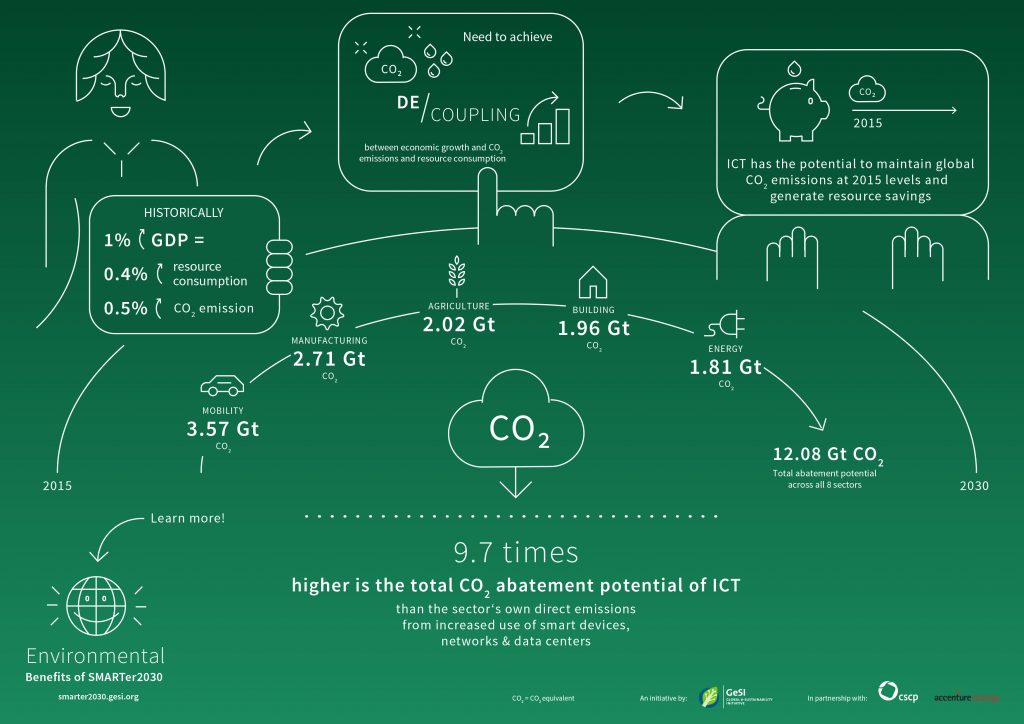At Microsoft, we believe technology has tremendous potential to address environmental challenges. A new report, the SMARTer 2030 Report, released on Tuesday at the Bonn Climate Change Conference by the Global e-Sustainability Initiative (GeSI), emphatically affirms the positive role that information and communications technology (ICT) can play in achieving a more sustainable world.
While historically economic growth has come with increasing carbon emissions, the report identifies ICT as a way to grow sustainably. ICT can enable a 20 percent reduction of global CO2 emissions by 2030, effectively holding global emissions at current levels and potentially decoupling growth from climate impact. At the same time, ICT could generate more than $11 trillion in sustainable benefits, which is slightly higher than China’s expected GDP for 2015.
With the acceleration of adoption of digital technologies across the globe, the scale and pace of these benefits is likely to increase. For example, this year’s report finds a net emissions savings of 20 percent, up from 15 percent in the 2012 SMART2020 report. The impact can be felt beyond just carbon emissions – ICT can integrate renewables into the grid, boost agricultural crop yields by 30 percent, save over 300 trillion liters of water and save 25 billion barrels of oil a year. ICT is also expected to connect 2.5 billion extra people to the knowledge economy by 2030, potentially giving 1.6 billion more people access to healthcare and half a billion more access to e-learning tools.
The SMARTer 2030 report calls on businesses, consumers and governments to take action to realize these benefits. On the website, you will find a video, infographics and other interactive content that shows you how to do just that.
All over the world, we see how technology is empowering people and creating sustainable solutions. Through our work with customers in the private and public sectors, and in our own operations, we are delivering on our carbon neutrality commitment and discovering new ways technology can help us attain a clean energy future.

